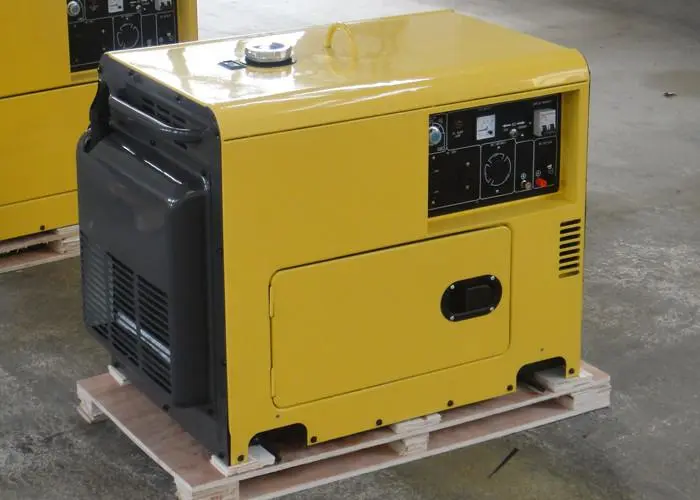Introduction
In mission-critical applications where uninterrupted power supply is essential, diesel generators play a crucial role in providing reliable backup power. From hospitals and data centers to military installations and telecommunications facilities, these generators serve as a reliable source of electricity during power outages or other emergencies. This article explores the importance of diesel generators in mission-critical applications, their key features, benefits, maintenance best practices, and future trends in the industry.
Importance of Diesel Generators in Mission-Critical Applications
Mission-critical applications are those where even a momentary loss of power can have severe consequences. For example, in hospitals, a power outage can disrupt life-saving medical equipment and procedures, jeopardizing patient care. In data centers, a loss of power can lead to data loss, downtime, and financial losses for businesses. In https://www.lkpowerplant.com , a reliable power supply is essential for carrying out critical operations and ensuring national security.
Diesel generators are well-suited for mission-critical applications due to their reliability, fuel efficiency, and ability to provide continuous power for extended periods. Unlike other backup power sources such as batteries or solar panels, diesel generators can generate power on demand and can operate for days or even weeks without refueling. This makes them ideal for applications where uninterrupted power is essential.
Key Features of Diesel Generators for Mission-Critical Applications
1. Power Output: Diesel generators are available in a wide range of power outputs, from a few kilowatts to several megawatts. This flexibility allows them to meet the specific power requirements of different mission-critical applications.
2. Durability: Diesel generators are known for their robust construction and durability. They are designed to withstand harsh environmental conditions, making them suitable for use in remote or challenging locations.
3. Fuel Efficiency: Diesel generators are more fuel-efficient than gasoline generators, making them a cost-effective choice for applications that require continuous power for extended periods.
4. Quick Start-Up: Diesel generators can start up quickly and reach full power output within seconds, ensuring a seamless transition to backup power in the event of a power outage.
5. Low Maintenance: Diesel generators require regular maintenance to ensure optimal performance. However, they are generally low maintenance compared to other types of generators, making them a reliable choice for mission-critical applications.
Benefits of Diesel Generators in Mission-Critical Applications
1. Reliability: Diesel generators are known for their reliability and ability to provide continuous power even in the most demanding conditions. This reliability is essential for mission-critical applications where downtime is not an option.
2. Scalability: Diesel generators can be easily scaled up or down to meet changing power requirements. This scalability makes them a flexible solution for applications that may require additional power in the future.
3. Fuel Availability: Diesel fuel is readily available in most parts of the world, making it easy to refuel diesel generators during emergencies or extended power outages.
4. Longevity: Diesel generators have a longer lifespan compared to other types of generators, making them a cost-effective investment for mission-critical applications.
5. Environmental Impact: While diesel generators produce emissions, modern models are designed to meet stringent emission standards and minimize their environmental impact. Some models are equipped with advanced emission control technologies to reduce emissions further.
Maintenance Best Practices for Diesel Generators
Proper maintenance is essential to ensure the reliable performance of diesel generators in mission-critical applications. Here are some best practices for maintaining diesel generators:
1. Regular Inspections: Conduct regular inspections of the generator, including checking for leaks, loose connections, and signs of wear and tear.
2. Fuel Quality: Use high-quality diesel fuel that meets the manufacturer's specifications to prevent fuel-related issues such as clogging or corrosion.
3. Oil Changes: Regularly change the oil and oil filters according to the manufacturer's recommendations to ensure proper lubrication of the engine.
4. Cooling System Maintenance: Keep the cooling system clean and well-maintained to prevent overheating and ensure optimal performance.

5. Battery Checks: Monitor the condition of the battery and replace it when necessary to ensure reliable start-up of the generator.
6. Load Testing: Periodically test the generator under load to ensure it can handle the required power output during an emergency.
Future Trends in Diesel Generators for Mission-Critical Applications
As technology continues to evolve, diesel generators for mission-critical applications are also seeing advancements in design and functionality. Some of the future trends in diesel generators include:
1. Hybrid Systems: Hybrid diesel generators that combine diesel engines with renewable energy sources such as solar or wind power are becoming increasingly popular. These systems offer increased efficiency and reduced environmental impact.
2. Remote Monitoring: Remote monitoring systems that allow operators to monitor and control diesel generators from a central location are gaining popularity. These systems enable real-time monitoring of the generator's performance and can alert operators to potential issues before they escalate.
3. Energy Storage Integration: Integrating energy storage systems such as batteries with diesel generators can help improve efficiency and provide additional backup power during peak demand periods.
4. Emission Reduction Technologies: Manufacturers are developing advanced emission reduction technologies for diesel generators to meet strict environmental regulations and reduce their carbon footprint.
Conclusion
Diesel generators play a vital role in ensuring reliable power supply in mission-critical applications where uninterrupted power is essential. Their reliability, scalability, and fuel efficiency make them a popular choice for applications such as hospitals, data centers, and military installations. By following best maintenance practices and staying abreast of future trends in the industry, organizations can continue to rely on diesel generators for their critical power needs.
